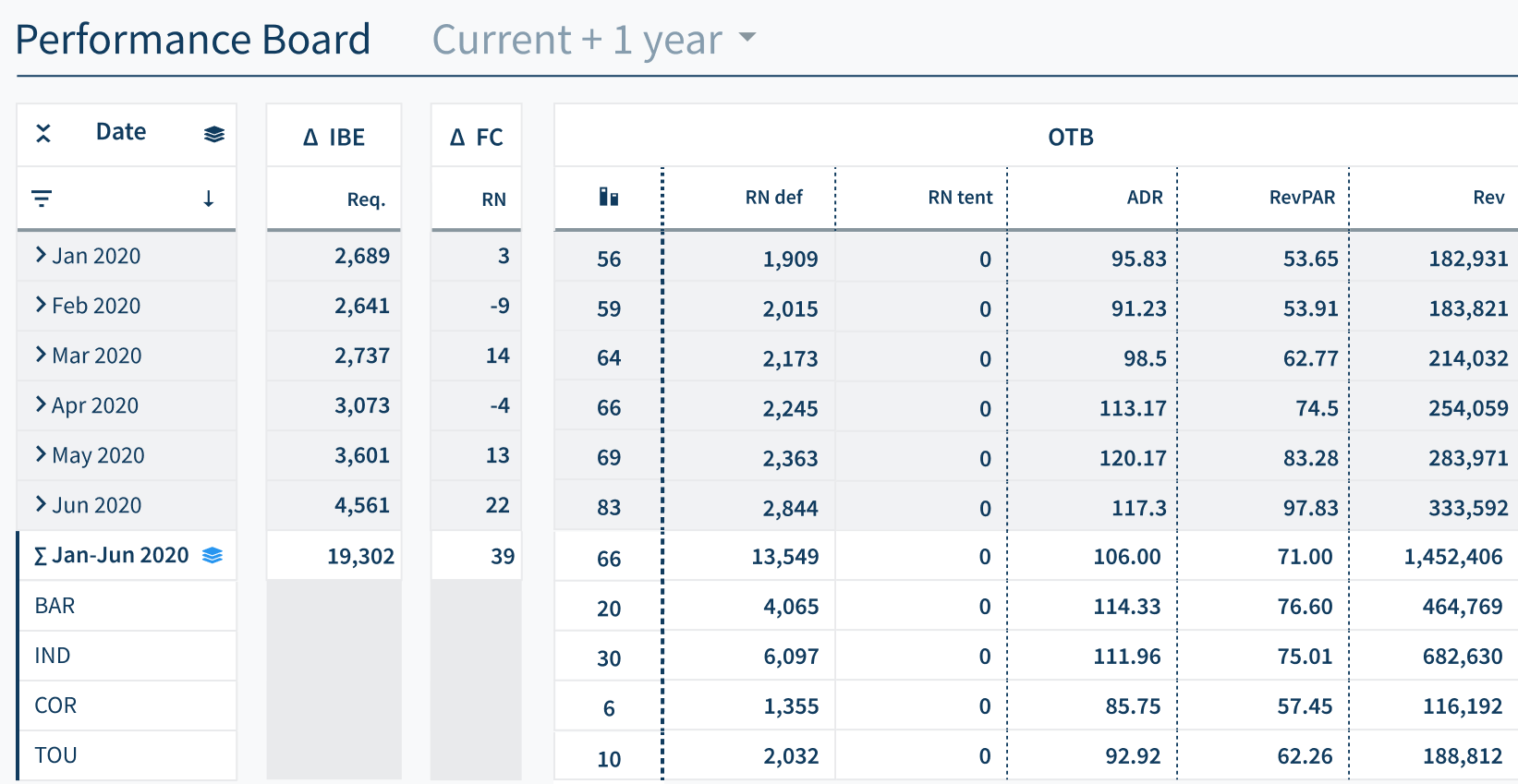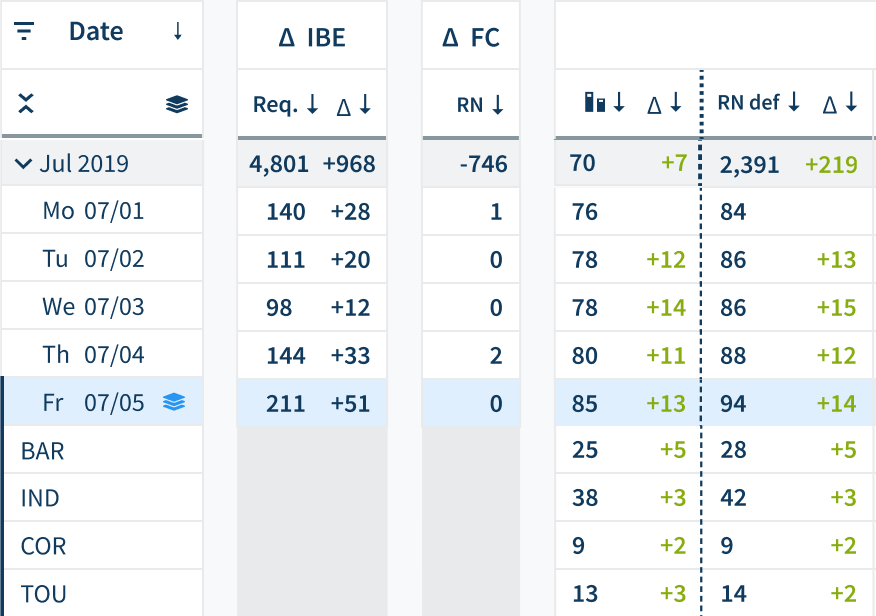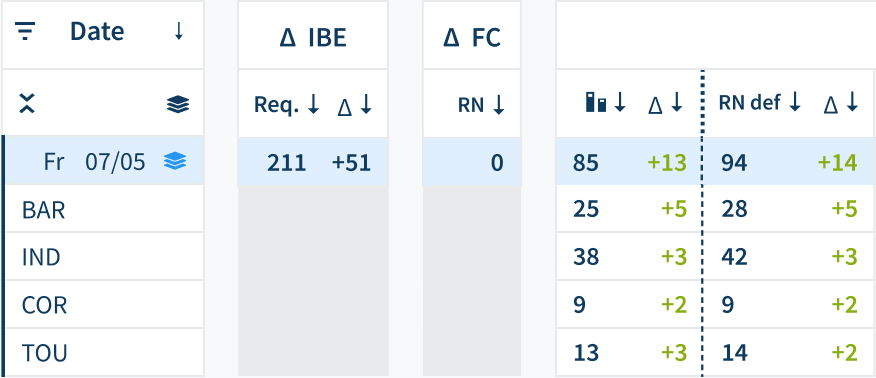Market Segments for Hotels: Want to Know Which Generate the Most Revenue?
Every reservation tells a story, so a hotel must understand how these bookings contribute to its overall business.
But how does a hotel know which market segments perform well and which do not?
Today we'll look at how a clear overview can help hotels identify revenue-driving segments, reveal business trends, and set prices and distribution early.
Table of contents:
- What are hotel market segments?
- What is channel segmentation?
- Why are hotel market segments important?
- How a clear overview of segments adds value
- Benefits of Segmentation: Three Things Hotels Can Do
Hoteliers that succeed with hotel market segmentation do several things very well:
First, they define the market segments for their property and understand which of them contribute the most to the overall business.
Second, they use their organization’s resources—like a hotel market monitoring solution—and teams to track segment performance and scale the actionable insights to tailor sales (price-setting) and marketing (special offers) efforts.
So let’s unpack market segmentation for hotels.
What are hotel market segments?
Market segments allow a hotel and its sales and marketing team to target and promote its inventory to an assortment of consumer groups.
And because these groups have diverse behavioral sets, the offer a hotel makes to each should correspond to their needs and wants and their budget level and price sensitivity.
Examples of Market Segments in Hospitality
Since these can get rather complex, let’s focus on the most accepted forms:
- Transient: This segment includes guests who have no affiliation to any specific company or group. These travelers book the Best Available Rate (BAR) or whichever charge is publically available.
- Corporate: These travelers benefit from discounted company rates, typically available through contracts that corporate clients receive as they consistently bring in new business.
- Group: Guests here can be a mix of leisure and business and pay contracted rates. Large groups may sometimes combine their stay with a specific event, like school trips, weddings, and conferences.
- Wholesale: Rooms for this segment are available at reduced rates, with tour operators and booking agents that focus on purchasing bulk tickets far in advance of the arrival date.
- Other: A catch-all segment of sorts, including categories that range from complimentary and overbookings to walk-ins, house use, and rates specific to hotel staff, family, and friends.
Indeed, hotels must make a clear distinction between individual and group business when choosing how to segment.
And be aware of which channels drive visitors to the hotel:
What is hotel channel segmentation?
Channel segmentation for hotels looks at where bookings originate.
Its purpose is to help hotels determine the cost of acquisition and the booking value for each channel.
Examples of Channel Segments in Hospitality
- Offline Direct: Reservations a hotel receives via phone calls or Email. Some analog-friendly properties may still receive some via fax.
- Online Direct: These are online reservations that visitors make through the hotel's own secure Internet Booking Engine or website.
- OTAs: Online (third-party) travel agencies provide a platform for travelers to book rooms for practically any hotel. Let’s also not forget that at least one OTA dabbled in pricing and web tricks in the past.
- GDS: Short for Global Distribution System, an extensive network that travel agents around the globe use to book rooms for people.
It is also important to remember:
Get Data Quality Right
Hotels have to get the data in market segmentation right as it is the most crucial element.
And thankfully, CRS (Central Reservation Systems) and PMS (Property Management Systems) integrations can automate the process of linking each booking to the correct segment and channel.
Getting the set-up and data mapping in these related systems right can:
- reduce common errors
- help hotel teams to optimize their channel mix
Having established what segmentation is, let’s shine a light on why this is so significant:
Why are hotel market segments important?
- Market segmentation in the hotel industry is essential because it can help identify the reason for a drop in reservations
- Hotels that can attribute a cancelation to the individual reservation type can audit and adjust pricing strategies as needed
One example is when a hotel tests dynamic pricing in leisure destinations.
But that’s not all.
Here are three more reasons why market segments in the hotel industry are important:
1) Hotel market segments identify profitable areas
This one is the most apparent gain, and most, if not all, hotels already do this. But it bears repeating.
A hotel's profit and loss statement that can highlight these areas are worth its weight in gold.
- Which are the most profitable channels that facilitate high-value guests?
- How much is each guest paying per booking?
- What are the most desired room types for which segment?
2) Hotel market segments reveal business trends
Trends and metrics that hotels must keep track of include:
- Which channels facilitate the most high-value guests?
- What is the feeder market (geographical location) from these guests?
- How long does each guest stay?
- Which days of the week dominate?
- What is the lead time before arrival dates?
- What are the cancellation averages?
- What is the no-show percentage?
These are just the tip of the iceberg when it comes to business trends.
As mentioned above, hotels that attribute trends appropriately can audit and adjust where needed.
3) Hotel market segments identify your guest potential
Hotels that understand their visitors in more detail today can optimize for customer satisfaction and marketing efforts, resulting in more accurate personalization.
Segmenting guests in detail helps hotels paint a picture of which types of guests bring in business:
- What is the lifetime value of guests?
- How much do guests spend per booking?
- Who are the loyal and returning visitors? A mix of leisure and business?
- What types of groups combine their stay with a hotel or offsite event?
Combined, information on hotel market segments offers incredible opportunities for hotels:
How a clear overview of hotel segments adds value
The significance of an overview of market segments for hotels is:
- Understand and measure how each reservation contributes to the overall business
- See a visual breakdown of individual reservation types for each day, month, and year, or even custom periods
- Improve forecasting based on identifying business trends
Hotels can apply these values using the Segments feature inside HQ revenue’s analytics-driven Performance Board.
What is Performance Board?
Our PMS analytics and KPI-tracking software solution visualizes hotel On the Books and real-time market data into actionable, continuous, and ready-made reports. Hotels can integrate their PMS data in a quick and easy way.
What is the Segments Feature?
The Segments feature allows revenue managers to track and analyze their property’s revenue and pick-up by a definite buyers segmentation.
It lets them discover how each segment contributes to the hotel’s overall On the Books, such as:
- Room Nights (Definite & Tentative)
- ADR (Average Daily Rate)
- RevPAR (Revenue per Available Room)
- Revenue
Let's take a look at how in a practical example:
Segments Feature: How It Works
A hotel close to an airport or event location might be looking to segment its target market in this way:
- BAR: Best Available Rate (Last-Minute)
- IND: Individual
- COR: Corporate
- TOU: Groups
What is a challenge the hotel might have? Besides needing to know what events entice travelers to visit the area?
Performance Board’s Segments feature breaks down the segments for the following periods:
- Yearly
- Monthly
- Daily
- Custom
Now:
The hotel will want to know a few things:
- What are the most successful months of the year?
- What days or weekends stand out in these months
Here’s how the Segments feature looks up close:
View Market Segments by Year: Best-performing months
For July 2020, notice the hotel’s four segments (mentioned above) add up as the most successful.
And see how each corresponds to the most important On The Books numbers:

Let’s go into more detail and find out how segments inform a hotel’s pickup.
For this bit, we will shift to an example from 2019 when COVID-19 did not impact business:
Segments by Month: Best-performing days
For 5 July 2019, we can see two important things:
- the performance of each segment on the given day and
- the hotel’s pick-up since three days ago
Below, the hotel’s IND segment adds the most to the day’s 85% occupancy: IND at 38 edges out BAR with 25.

NB: Performance Board pulls in historical hotel data up to the last 90 days to display the pick-up. The numbers in green represent a positive development.
It gets better:
A closer look reveals BAR outperforms IND for room nights pick-up (total RN is 94) since three days ago:
- BAR secures five room nights (+5 for a total of 28)
- IND gains only three more (+3 for a total of 42)

One thing is clear:
Hotels can go in-depth into their segment performance.
After an analysis, the hotel can optimize its prices, budget, and cost-efficiency where necessary—based on the months that perform well for specific segments and which may not.
These analyses are just the tip of the iceberg when it comes to what's possible when hotels work with the Segments feature in Performance Board.
With these detailed insights in mind, what are the action steps that hotels can take?
Benefits of Market Segmentation: What Hotels Can Do
Here are three benefits of effective hotel market segmentation:
1. Identify visitor types that generate the most turnover
The key to effective Revenue Management:
A hotel sells the right room to the right guest at the right time for the right price through the right channel.
How a hotel identifies market segments that generate the most turnover could play out as follows:
- A city hotel finds the corporate segment brings in the most revenue
- A beach resort confirms individual (segment) outperforms wholesale and groups
- A ski lodge sees groups ranking the highest
2. Reveal when specific segments book, stay, or cancel
Hotels may want to know if and when certain guest types book.
Given seasonality or special days around future events, having an idea of what segments make up hotel occupancy can be invaluable.
Hotels can use this information to evaluate allocations of rooms as necessary.
As mentioned earlier, it helps when the hotel can attribute certain cancelations to the proper segment types.
3. Set pricing and distribution early for each segment
In this scenario, hotels can operate within a forward-looking strategy.
One possible way is:
The hotel sets appropriate room rates for specific segments early to attract more of the right guests.
In doing so, the hotel also keeps in mind this group’s price sensitivity.
Of course, the rates also have to align with competitor moves.
And here, access to real-time hotel market prices is vital.
Summed Up: Benefits of Hotels Segmenting their Market
| Understand the Guests |
Discover the Trends |
Strengthen the Actions |
Increase the Outcomes |
| Guest patterns Purchasing power Inventory choices |
Feeder markets Online channels Elasticity |
Forecasting Decisions Budgeting |
Revenue Profitability Efficiency |
Over to you
Thank you for reading our detailed look into the rather complex topic of market segmentation. It is a topic that goes relatively deep, precisely because the hospitality industry is so diverse.
- What does segmentation look like at your property?
- What are your business trends and revenue-generating segments?
To answer these questions:
Get started with the Segments feature in Performance Board.
- Revenue Managers can use this entirely free-to-use analytics tool to devise action plans from rolling three-month insights and ready-made reports of their Busines On The Books.
- Get in touch with our revenue management experts to schedule a personalized demo.
And if you like this article or know someone who would benefit from reading it, consider sharing it with a friend, colleague, or professional network.
Share this
You May Also Like
These Related Stories

Agoda’s Hidden Web Tricks

Hotels Can Stay Competitive with This Booking RateIntelligence Alternative


